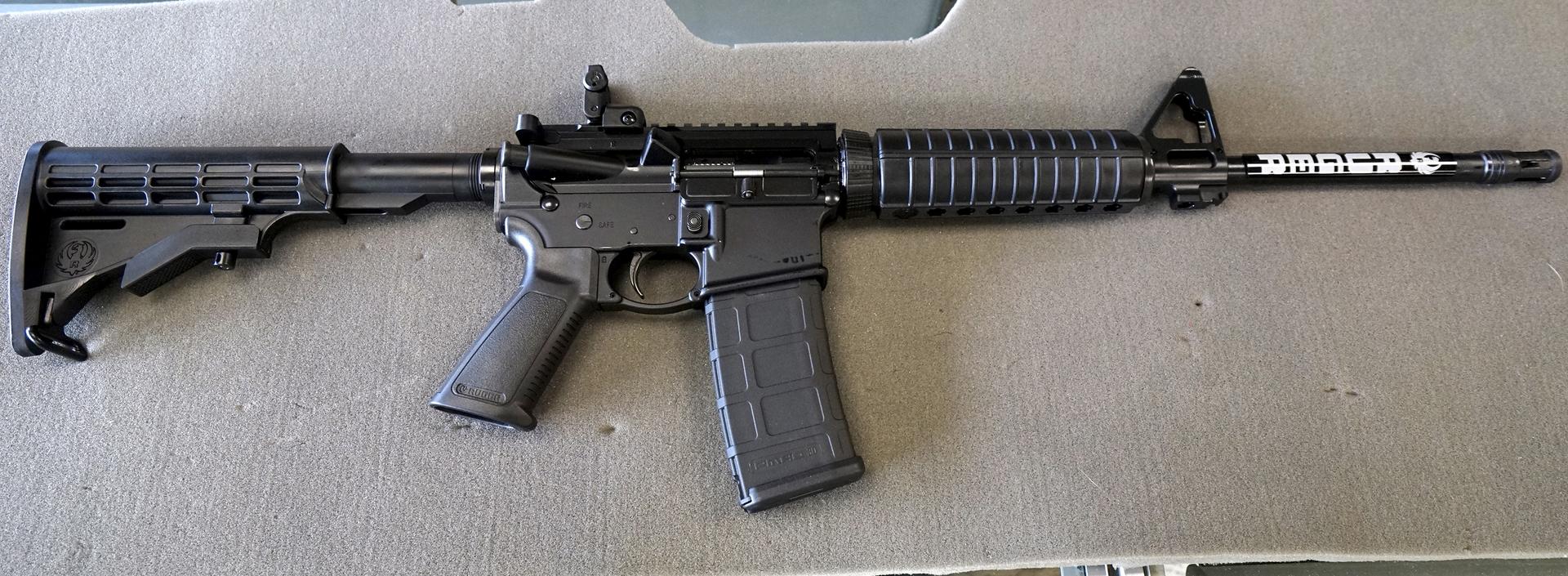AR-15, the gun behind US mass shootings.
So why would someone buy an AR-15 assault rifle? The weapon has been vilified by gun-control advocates after several mass shootings, including the killings earlier this month of 49 club-goers in Orlando.
For Luis Quiñonez, there are many reasons, including nostalgia.
"It reminds me of my youth when I was serving at the US Marine Corps," says the Guatemalan-born 64-year-old businessman, who served as an officer in Vietnam. "The first rifle that protected my life was the AR-15."
The AR-15 is one of six guns owned by Quiñonez, now a US citizen and an NRA member.
"I think part of me bought it because of this constant attack on the Second Amendment. Some on the other side are saying, 'This is bad, bad, bad.' So curiosity said, 'Let me find out why.' So I tried it," Quiñonez recalls. "Nostalgia, when I was a young kid, a stupid kid, defending whatever ideas we were defending back in Vietnam.
"To me, the AR-15, frankly, shouldn't be a first choice of guns because it's not good for hunting. The caliber is too small. If you're going to face a moose or some large animal, you're not going to bring it down with an AR-15," Quiñonez explains. "Most people, when I speak to people about why they own their AR-15s or AK-47s, it's because, 'We heard so much about it and they attack it, attack it, attack it that I want to see what is it all about.'"
Quiñonez moved to the United States at age 17 from Guatemala, which he remembers as crime-ridden and insecure.
"As a young kid growing up, we saw daily violence. Shooting between the police and the army and some of the leftist sides. In fact, in one particular case, I remember that we almost got shot with a family. There was a shootout between the leftist side and the army. Several bullets hit just a foot atop of us, which is not something you want to remember for the rest of your life, to be sure," Quiñonez says.
"As a kid, we had to be extremely careful. In many cases, we saw shootings right in front of us or on the street. Some people think that if you see enough of it, you get insulated. No, it's not. I don't care how many times you see it, every time it impacts you."
Although Quiñonez witnessed this violence often, he explains that "guns in Mexico, in Guatemala, in Honduras — which have some of the highest murder rates in the world — are illegal."
"It's a lack of understanding of what the gun's about … guns don't kill people. It's people. The biggest problem we have is how do we identify those who cannot and should not have guns," Quiñonez says.
Aside from target practice and having had to defend his own life in the military, Quiñonez says he has had to pull out one of his guns before.
"I was in my house, at about 2 in the morning sleeping downstairs, I was watching a game, I fell asleep. I heard noise and I see this individual sneaking in from one of the back windows. Immediately, I had a little gun case there, I picked it up and I told the guy to freeze. He jumped back up out of the window. I opened the door and said, 'Stop right there or I'll shoot,' and the guy did. I called the police in the meantime. They arrested him. They had been looking for this guy for a year," Quiñonez recalls. "So thank God that was the only time I had to use it."
Despite being a member of the NRA, Quiñonez says he disagrees with the organization at times. The NRA lobbied against four gun control measures, all of which were voted down by the US Senate late Monday.
"I don't agree with some of the current pushes," Quiñonez says. "I think everyone should have training and demonstrate how to appropriately and responsibly manage a gun. I think just the fact that you have the money and you have a clean sheet, you go and buy one without ever having taken the first step about why and how — it's very dangerous."
Quiñonez has voiced his objections to local newspapers about not pushing for certain gun laws. He believes there should be proper background checks and trainings before being eligible to purchase a gun.
"I think there should be regulations to make sure that people who shouldn't own weapons don't have them and don't have access to them," Quiñonez says. "I also disagree with the NRA on the open-carry. I wouldn't like to be at a fast-food restaurant, a McDonalds, Burger King store, and find a guy with guns strapped on the outside. That's just too much. What message are we sending to the kids?
"Secondly, if I am a criminal, I'm going to enter a place, like in Orlando, unfortunately. The first person I'm going to take is the one who's going to oppose me. If I see someone with a gun, I'm going to take him down first. So open-carry is not the solution. It's not a good idea at all."
Every day, reporters and producers at The World are hard at work bringing you human-centered news from across the globe. But we can’t do it without you. We need your support to ensure we can continue this work for another year.
Make a gift today, and you’ll help us unlock a matching gift of $67,000!
